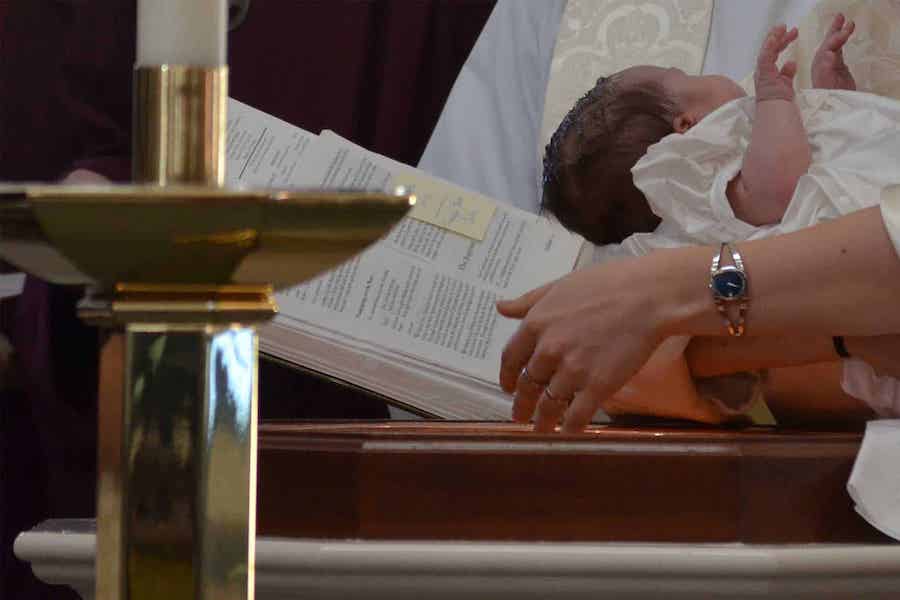Release of Episcopal Church statistics earlier this month hit hard: the worst-ever year-over-year drop in membership (down 88,306 persons, or 6 percent), while attendance saw a middling (19 percent) rebound from COVID-era lows. Access my report on those numbers here.
Attendance and membership are lagging indicators that tell us where the church has already been. Baptisms, confirmations and marriages can serve as leading indicators, giving a better sense of where the Episcopal Church is headed in the next 20 years. These figures paint a dire picture of a denomination that will see its decline accelerate and its ministry presence conclude in many communities.
Frank Assessments
Consider what the denomination’s top officials now openly acknowledge:
“Our context demands that we must help the church to face and engage the reality of decline,” Presiding Bishop Michael Curry candidly told the Episcopal Church Council of Bishops meeting virtually September 19 in his opening remarks. “This is not easy. The times are not easy.”
The numbers were unsurprising. In June, the Episcopal Church’s highest ranking lay officer, House of Deputies President Julia Ayala Harris, effectively signaled what was coming in opening remarks before the denomination’s Executive Council meeting in Providence, Rhode Island.
“At the churchwide level, we sometimes talk a little too much about numbers, numbers of people in the pews, and not enough about the fruit of our ministries,” Harris suggested, telegraphing that the numbers would indeed be horrid. “We worry about the dreaded ‘D’ word—decline—as though finishing the work that Jesus left for us to do on Earth was measured in Average Sunday Attendance or by the available funds in the parish bank account.”
But, as Harris acknowledged, “these things are important” and merit discussion especially in a governance context like the Executive Council.
For historical context, revisit 2011, when Episcopal Diocese of Washington Bishop Mariann Budde was among the very few bishops candidly assessing where most Episcopal parishes were headed. This was the same time period in which high profile bishops like Gene Robinson deluded themselves with fanciful dreams of liberal Roman Catholics converting en masse, lining up for Episcopal same-sex marriage rites.
Baptism, Marriage and Confirmation
Episcopalians reported 19,716 children and 3,866 adults baptized in 2019, the last full year before COVID restrictions. By 2021, the church reported 14,714 children and 2,136 adults baptized, rebounding slightly to 15,272 children and 2,147 adults in 2022, a 23 percent decline for children and a staggering 45 percent decline in adult baptisms in only three years.
Marriage rates tanked, despite new rites available to same-sex couples. In 2019 6,484 marriages were solemnized, dropping to 4,592 in 2021 and partly rebounding to 5,562 in 2022, a decline of 15 percent across the three year period. For context, there were 10,394 marriages solemnized in 2013, a drop of 47 percent in less than 10 years.
Confirmation numbers also tumbled. In 2019, 6,857 children and 8,737 adults were confirmed across the Episcopal Church. By 2021 those numbers dropped to 4,805 children and 5,657 adults, rising again to 5,473 children and 6,648 adults in 2022, a loss of 20 percent and 24 percent, respectively, across the three year period.
While many Episcopal churches reopened to in-person worship services later than Roman Catholic, Evangelical or Pentecostal churches, almost all were fully open throughout 2022, the most recent reporting year.
Optimists might protest that Episcopalians are still in the process of returning to church, but let me disabuse readers of that notion: they’ve transferred to another church that reopened earlier, traded weekly church attendance for some combination of yoga and/or brunch, or are deceased. If they failed to return to the pews in 2022, these Episcopalians are now gone.
Burials and Receptions
Speaking of the deceased, burials conducted within the Episcopal Church are among the more stable numbers. In 2019 there were 26,667 burials, dropping to 23,741 in 2021 and again ticking upward to 25,905 in 2022. At a mere 3 percent rate of decline, the death rate within the Episcopal Church is mild compared to almost any other tracked metric. Far more people are walking out the door alive than those exiting via graveside interment.
New church members are no longer being received in the same numbers from other liturgical traditions like Catholicism or Lutheranism. In 2019, 6,876 new Episcopalians were received, dropping to 3,649 in 2021 and, again, partly rebounding to 4,106 in 2022, a decline of more than 40 percent. There no longer appears to be a significant pipeline of new members.
Oddly, Harris greeted survey data in June with a declaration that “one of the major themes that has emerged from the data that is a significant marker of health is literally the feeling of pride in congregational identity. Pride in what we accomplish together, not the size of the congregation.”
For his part, Curry took a posture of humility when addressing the Council of Bishops this month:
“We need God, and we need each other.”
Data in this report is taken from the Table of Statistics of the Episcopal Church drawn from 2022 and earlier Parochial Reports. Source: The Office of the General Convention as of September 2023. Access those reports in full here.
MORE: Episcopal Marriage, Baptism Numbers Collapse (2018)
Episcopalians See Partial Attendance Rebound as Membership Melts Down (2023)






Comment by David on September 30, 2023 at 7:50 am
Let us not forget the “Nones,” those claiming no particular religious affiliation. Their numbers are steadily increasing to the point that they would be the largest “denomination” in the US. These people had to come from somewhere.
https://www.prri.org/research/2020-census-of-american-religion/#:~:text=White%20evangelical%20Protestants%20are%20the%20oldest%20religious%20group%20in%20the,a%20median%20age%20of%2050.
Comment by Different Steve on September 30, 2023 at 8:16 am
Let’s not forget that Episcopal Church numbers and public polls are two separate things and can overlap/contradict each other. A person that identifies as a none might be considered a member in church statistics. Most lapsed Episcopalians aren’t going to be motivated enough to purge their names from the rolls.
Comment by David Mu on September 30, 2023 at 10:56 am
I attended the one nearest me for a mid-week service. Old church building with an history, but the current membership of about 35 or so. Before leaving, I gave the priest my contact information. That was now a little over a year ago, and I have heard nothing back.
Frankly, the place looked more like a hospice center. And while I am older, I see a future for myself yet still. This church has no future, and nothing helps it to have a future – even if the priest lists his preferred personal pronouns. This one did, but why the need? A wife and children was enough.
Regardless, the one real regret in all this is knowing that this group will have a comfortable ride to the cemetery, because of the deep money here and there allowing the foolish and silly notions that we are all told is ‘love’. There’s is little love to any of it. But there is plenty of extreme leftist submission that does nothing.
Comment by Colin Ross on September 30, 2023 at 3:51 pm
You know most of us dont leave church for yoga and brunch right? I think you missed the biggest key in the drastic decline of Christianity in general over the past 30 years…the internet. With unlimited access to information people have been able to check the answers the churches keep giving. While its fun to laugh at the woke church (the jokes about the Episcopal church write themselves) all of the denominations in the first world are disappearing.
Comment by ronetc on October 1, 2023 at 11:01 am
Episcopalians: “Pride in what we accomplish together, not the size of the congregation.” Spinal Tap: “Our appeal has become more selective.”
Comment by Mikeb on October 1, 2023 at 12:39 pm
Last two churches I visited were before moving. The first one I had some fantastic theological discussions, and the people were friendly and had outreach and missions. But there was an explicit expectation of tithing right away. I felt more try before buy.
The other church was an inner city plant, very friendly people, no theology interest, as they were more interested in talking about jobs and other things, and no giving expectations or out reach.
The reason I never got more involved with the first was I was not willing to commit money to something I was unsure of I have been to many churches with awful cliques that lurk under the surface. I would have committed time in outreach or volunteering to know them better, but money upfront felt… wrong, so I never made a second trip.
The second one was too close to moving and I didn’t make it for a return trip.
In the end I am looking for something where it is convenient to my life… that’s a me problem, but I feel that is common with modern church hoppers.
We want a local church that doesn’t want our money right away as many of our finances aren’t in immediate shape to give, we got used to keeping the money. But speaking for myself and possibly others we want to give and get involved in a non clique way.
Comment by Loren J Golden on October 8, 2023 at 11:44 pm
“We worry about the dreaded ‘D’ word—decline—as though finishing the work that Jesus left for us to do on Earth was measured in Average Sunday Attendance or by the available funds in the parish bank account.”
If Ms. Harris were honest, she would admit that the Episcopal Church, like all of the former mainline Protestant denominations, has, by and large, punted on “finishing the work that Jesus left for us to do on Earth:”
“Go…and make disciples of all nations, baptizing them in the name of the Father and of the Son and of the Holy Spirit, teaching them to observe all that I have commanded you.” (Mt. 28.19-20)
And it is because the Episcopal Church and her six “sisters” (the American Baptist Churches USA, the Christian Church (Disciples of Christ), the Evangelical Lutheran Church in America, the Presbyterian Church (USA), the United Methodist Church, and the United Church of Christ) have advocated pro-abortion agendas and sexually deviant lifestyle choices, rather than attending to the Lord’s agenda of proclaiming His Gospel and making disciples for Him, that they have been hemorrhaging members every year for the last six decades.
Like Paul’s former associate Demas, the mainline Protestant denominations have fallen “in love with this present world (and) deserted” the calling and work of Christ (II Tim. 4.10). Not surprisingly, then, they are dying, though it need not be so.
“Therefore I will judge you, O house of Israel, every one according to his ways, declares the Lord GOD. Repent and turn from all your transgressions, lest iniquity be your ruin. Cast away from you all the transgressions that you have committed, and make yourselves a new heart and a new spirit! Why will you die, O house of Israel? For I have no pleasure in the death of anyone, declares the Lord GOD; so turn, and live.” (Ezek. 18.30-32)
“But I have this against you, that you have abandoned the love you had at first. Remember therefore from where you have fallen; repent, and do the works you did at first. If not, I will come to you and remove your lampstand from its place, unless you repent.” (Rev. 2.4-5)
“But I have a few things against you: you have some there who hold the teaching of Balaam, who taught Balak to put a stumbling block before the sons of Israel, so that they might eat food sacrificed to idols and practice sexual immorality. So also you have some who hold the teaching of the Nicolaitans. Therefore repent. If not, I will come to you soon and war against them with the sword of my mouth.” (Rev. 2.14-16)
“But I have this against you, that you tolerate that woman Jezebel, who calls herself a prophetess and is teaching and seducing my servants to practice sexual immorality and to eat food sacrificed to idols. I gave her time to repent, but she refuses to repent of her sexual immorality. Behold, I will throw her onto a sickbed, and those who commit adultery with her I will throw into great tribulation, unless they repent of her works, and I will strike her children dead. And all the churches will know that I am he who searches mind and heart, and I will give to each of you as your works deserve.” (Rev. 2.20-23)
“I know your works. You have the reputation of being alive, but you are dead. Wake up, and strengthen what remains and is about to die, for I have not found your works complete in the sight of my God. Remember, then, what you received and heard. Keep it, and repent. If not, you will not wake up. I will come like a thief, and you will not know at what hour I will come against you.” (Rev. 3.1-3)
“I know your works: you are neither cold nor hot. Would that you were either cold or hot! So, because you are lukewarm, and neither hot nor cold, I will spit you out of my mouth. For you say, I am rich, I have prospered, and I need nothing, not realizing that you are wretched, pitiable, poor, blind, and naked. I counsel you to buy from me gold refined by fire, so that you may be rich, and white garments that you may clothe yourself and the shame of your nakedness may not be seen, and salve to anoint your eyes, so that you may see. Those whom I love, I reprove and discipline, so be zealous and repent.” (Rev. 3.15-19)
“From that time Jesus began to preach, saying, ‘Repent, for the kingdom of heaven is at hand.’” (Mt. 4.17)
Episcopalians and all who are of like mind with the formerly mainline Protestant denominations, heed the word of the Lord: Repent! Repent of your advocacy of pro-abortion agendas and sexual deviancy! Repent of the undermining your constituencies’ confidence in the Scriptures, as if they were the words of man and not the word of God! Repent of your neglect of proclaiming the message of salvation by grace alone through faith alone in the person and atoning work of Christ alone in His death on the Cross, whereby He paid on our behalf the penalty we deserve for our sins, thereby satisfying the wrath and justice of God, and in His life-giving bodily resurrection from the grave, where He demonstrated His victory over sin and death! And repent of your neglect of making disciples who, above all else, will love God, as He has revealed Himself in His inerrant, absolutely trustworthy Word, and will love their neighbors as themselves!
But if you will not repent, know that His judgment is not far off, “For it is time for judgment to begin at the household of God; and if it begins with us, what will be the outcome for those who do not obey the gospel of God?” (I Pet. 4.17)